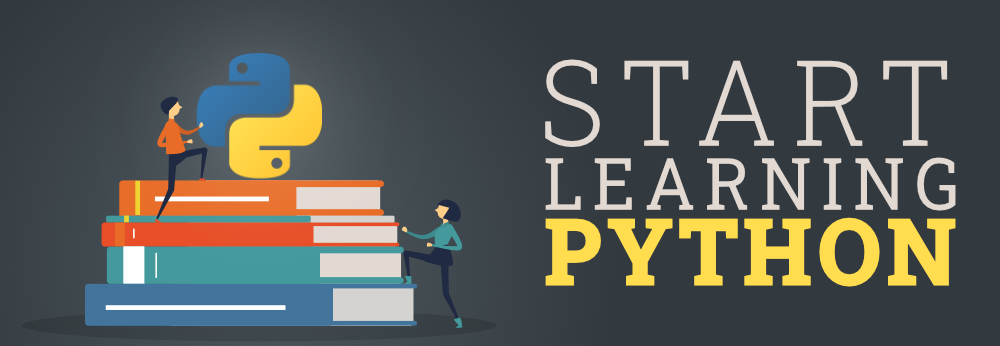In today’s world, data is everywhere—from the social media posts you like to the fitness stats your smartwatch tracks. But raw data is meaningless unless it’s analyzed and used effectively. That’s where data science comes in—a field that turns data into valuable insights and drives decision-making in almost every industry.
If you’re a graduate student curious about this exciting field, this blog will give you a clear understanding of what data science is, why it’s important, and how you can start your journey.
What Is Data Science?
Data science is a blend of mathematics, statistics, programming, and business knowledge. It involves collecting, cleaning, analyzing, and interpreting data to solve real-world problems. Think of a data scientist as a detective, but instead of solving crimes, they solve business problems by uncovering hidden patterns in data.
For example:
- An e-commerce platform like Amazon uses data science to recommend products you’ll likely buy.
- Banks use it to detect fraud and improve customer service.
- Healthcare providers use it to predict disease outbreaks and personalize treatments.
Why Is Data Science Important?
The world generates a staggering amount of data every day—think emails, social media posts, online transactions, and even sensor data from IoT devices. Companies need data science to make sense of this information, improve their strategies, and stay competitive.
Some key benefits include:
- Better Decision-Making: Analyzing data helps organizations make informed choices.
- Personalized Experiences: From Netflix recommendations to Spotify playlists, data science makes our lives easier.
- Problem-Solving Power: Data science identifies and solves complex challenges, such as traffic optimization or climate change analysis.
Skills Needed for Data Science
To become a data scientist, you need a mix of technical and analytical skills:
- Programming: Learn Python or R, the most popular languages in data science.
- Statistics & Mathematics: Understand concepts like probability, regression, and machine learning.
- Data Manipulation: Know how to work with tools like SQL for managing databases.
- Visualization: Tools like Tableau and libraries like Matplotlib help you present data effectively.
- Problem-Solving: Critical thinking is crucial to approach challenges creatively.
How Can Graduation Students Start?
If you’re interested in data science, here’s a roadmap to get you started:
- Learn the Basics
Start with free resources like YouTube tutorials or blogs. Websites like Coursera and edX offer beginner-friendly courses on data science. - Practice with Real Data
Experiment with public datasets on platforms like Kaggle. Work on small projects, such as analyzing trends in COVID-19 data or predicting house prices. - Master Essential Tools
Familiarize yourself with Python (use libraries like Pandas and NumPy) and visualization tools like Power BI. - Join Communities
Participate in online forums like Reddit or LinkedIn groups to learn from experienced data scientists. Hackathons and data challenges are also great for networking. - Build a Portfolio
Showcase your skills through projects, and upload them on GitHub. A strong portfolio can help you land internships or jobs.
Data Science: A Must-Know for Today’s Graduates
In today’s world, data is everywhere—from the social media posts you like to the fitness stats your smartwatch tracks. But raw data is meaningless unless it’s analyzed and used effectively. That’s where data science comes in—a field that turns data into valuable insights and drives decision-making in almost every industry.
If you’re a graduate student curious about this exciting field, this blog will give you a clear understanding of what data science is, why it’s important, and how you can start your journey.
What Is Data Science?
Data science is a blend of mathematics, statistics, programming, and business knowledge. It involves collecting, cleaning, analyzing, and interpreting data to solve real-world problems. Think of a data scientist as a detective, but instead of solving crimes, they solve business problems by uncovering hidden patterns in data.
For example:
- An e-commerce platform like Amazon uses data science to recommend products you’ll likely buy.
- Banks use it to detect fraud and improve customer service.
- Healthcare providers use it to predict disease outbreaks and personalize treatments.
Why Is Data Science Important?
The world generates a staggering amount of data every day—think emails, social media posts, online transactions, and even sensor data from IoT devices. Companies need data science to make sense of this information, improve their strategies, and stay competitive.
Some key benefits include:
- Better Decision-Making: Analyzing data helps organizations make informed choices.
- Personalized Experiences: From Netflix recommendations to Spotify playlists, data science makes our lives easier.
- Problem-Solving Power: Data science identifies and solves complex challenges, such as traffic optimization or climate change analysis.
Skills Needed for Data Science
To become a data scientist, you need a mix of technical and analytical skills:
- Programming: Learn Python or R, the most popular languages in data science.
- Statistics & Mathematics: Understand concepts like probability, regression, and machine learning.
- Data Manipulation: Know how to work with tools like SQL for managing databases.
- Visualization: Tools like Tableau and libraries like Matplotlib help you present data effectively.
- Problem-Solving: Critical thinking is crucial to approach challenges creatively.
How Can Graduation Students Start?
If you’re interested in data science, here’s a roadmap to get you started:
- Learn the Basics
Start with free resources like YouTube tutorials or blogs. Websites like Coursera and edX offer beginner-friendly courses on data science. - Practice with Real Data
Experiment with public datasets on platforms like Kaggle. Work on small projects, such as analyzing trends in COVID-19 data or predicting house prices. - Master Essential Tools
Familiarize yourself with Python (use libraries like Pandas and NumPy) and visualization tools like Power BI. - Join Communities
Participate in online forums like Reddit or LinkedIn groups to learn from experienced data scientists. Hackathons and data challenges are also great for networking. - Build a Portfolio
Showcase your skills through projects, and upload them on GitHub. A strong portfolio can help you land internships or jobs.
Career Opportunities in Data Science
Data science is one of the most in-demand fields, with opportunities in various industries:
- Data Analyst: Analyze data to find trends and insights.
- Data Engineer: Build systems to manage and process data.
- Machine Learning Engineer: Create AI models to solve specific problems.
- Business Analyst: Use data to improve business strategies.
Salaries in data science are also highly competitive, making it a lucrative career choice.
The Future of Data Science
Data science is evolving rapidly with advancements in AI and machine learning. As automation and big data become central to industries, the demand for skilled data scientists will only grow. Whether it’s helping companies become more efficient or tackling global issues like climate change, data science is shaping the future.
Conclusion
Data science is a powerful and versatile field that combines technology and creativity to solve real-world problems. For graduate students, it’s an exciting area that offers endless opportunities to learn, innovate, and build a rewarding career.
Start your journey today, and who knows? You might be the next data science innovator shaping the world!












